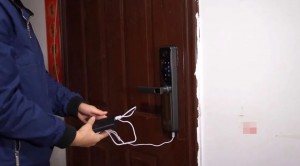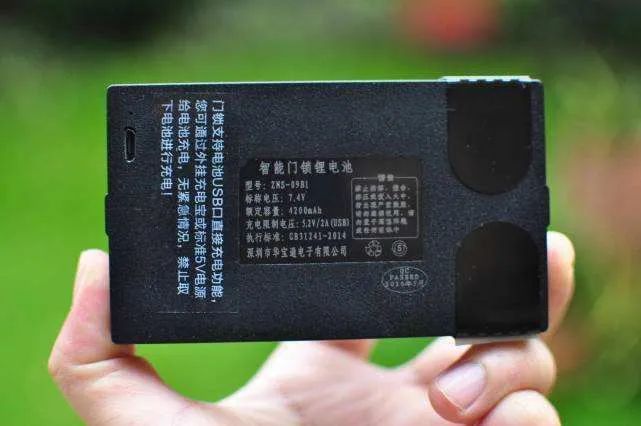In both daily life and online discussions, the idea of using a power bank for emergency charging of smart locks when they run out of battery is frequently mentioned. But what about using power banks for regular charging of smart locks in non-emergency situations?
Many users indeed resort to power banks for charging their smart locks regularly. However, there’s a debate about whether power banks should only be reserved for emergencies and not as a routine charging method. To shed light on this contentious issue, we consulted professionals in the battery industry to provide clarification.
The debate primarily revolves around two concerns: battery aging leading to reduced capacity and the risk of battery explosion.
Regarding these concerns, the experts assured us that using power banks to charge smart locks is entirely feasible.
While lithium-ion batteries in smart locks are rechargeable, they still undergo aging. The aging process of lithium-ion batteries is primarily influenced by the number of charge-discharge cycles, where the battery undergoes a complete 100% discharge/charge cycle. As the number of cycles increases, the battery’s capacity gradually diminishes, leading to aging.
“For example, a lithium-ion battery with a capacity of 4000mAh, when fully charged, can power a door lock for approximately 40 days before needing a recharge. After roughly 30-40 charge-discharge cycles, the battery’s capacity starts to diminish over time due to aging.”
However, due to variations in the composition of lithium-ion battery materials, the lifespan of these batteries typically ranges from 1 to 2 years.
Regarding the risk of battery explosion, the experts clarified that under normal circumstances, lithium-ion batteries do not explode unless subjected to external forces such as impact, compression, or puncture.
From the analysis above, theoretically, using power banks to charge lithium-ion batteries in smart locks poses no issues. However, in practice, various external factors may affect battery lifespan or cause damage during the charging process.
Post time: Feb-14-2024






